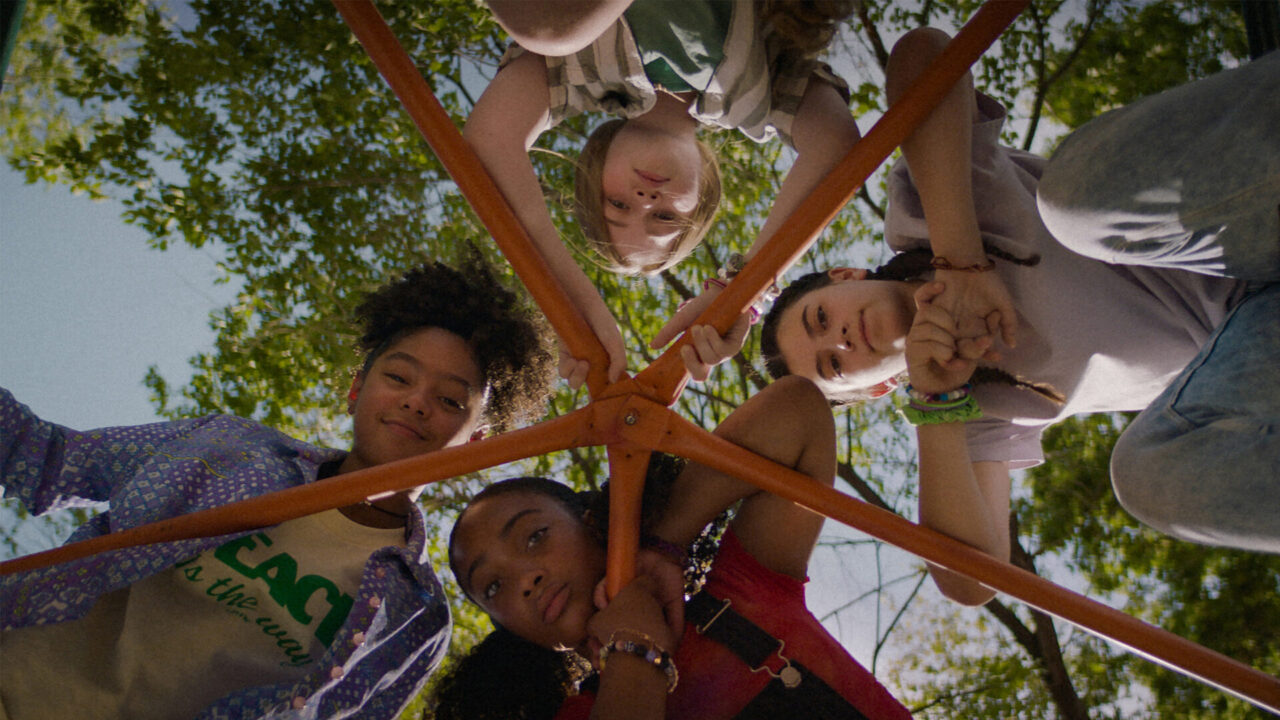James Ponsoldt is a director who’s made a wide range of movies. Of them, there are some I’ve really connected with, like 2013’s The Spectacular Now and 2015’s The End of the Tour. Looking closer, I think the reason behind why I appreciate both films is because, in them, characters are drawn towards pursuing a strangely alluring kind of darkness in life. His new film, Summering, a coming-of-age story about a group of friends who bond over an unexpected discovery during their last days of summer, couldn’t be further from those films. But Ponsoldt does infuse a bit of fate into this childhood story that makes it just a bit more elevated and smart than it might’ve been in the hands of another writer-director.
It’s an interesting shift of gears that Ponsoldt makes here. Having previously made movies with more mature themes and artistic stature–whether about alcoholic high schoolers or the tragic beauty of David Foster Wallace–he’s now at a place in his life where he wants to celebrate the transient beauty of young people and their friendship. Perhaps after making these darker films, he knows how fleeting this pure time in life is.
As Ponsoldt said while (virtually) introducing the film during its premiere at the Sundance film festival, Summering was born “out of a desire to see better films about his daughter wife, and mother.” So, it’s clear that he intended to make something lighter, something he could show his family and that they would hopefully also enjoy. After watching the film, it’s quite obvious how much he wants to celebrate girlhood, and girl power, from a very proud girl dad.
It’s the last few days of summer, and four best friends–Daisy (Lia Barnet), Dina (Madalen Mills), Mari (Eden Grace Redfield), and Lola (Sanai Victoria)–intend to spend it together, playing in the bright sunshine without an adult in sight. Summering sets out to capture the magic of youth, friendship, and growing up. Ponsoldt’s camera captures highly stylized sequences of them all running in slow-motion and making dreamlike leaps over creeks, magical moments with enchanted music underneath. If the whole thing feels a bit too cheesy, it’s clearly because he can’t help himself. But then again, with this much joy and beauty being captured, why would you want to?
However, the magic is quickly countered when they stumble upon a dead body in their secret spot in the woods (cue Stand By Me). Interestingly, they aren’t scared or even shocked. In fact, they stoically and smartly decide not to tell anyone about it, knowing they’ll just be coddled (“They’ll think we’re like, traumatized.”) (Side note: they’re not?).
Ponsoldt doesn’t forget that these young friends are still just kids. But what he does here is treat them with respect, and give them a sense of autonomy and agency. They stake their claim with their discovery: “This is our body.” They make a secret pact, and the remainder of the movie follows their shared journey to discover who the deceased man was and bond along the way.
While Summering feels like a very family-friendly film–at times, too packaged and kiddie–Ponsoldt still puts forward interesting themes that the kids discuss. They’re a few days from entering middle school, but their conversation ranges to talking about death, even the topic of suicide arising (perhaps it speaks to their collective impressive intelligence on the matter, but their inability to truly understand it just yet).
Although it’s not destined to become a new classic in the coming of age genre (nor high on my personal list of Ponsoldt’s films), Summering may very likely be a movie that gives a new, younger moviegoer and their friends something to connect to and bond over.
87 minutes.
Ryan Rojas
Ryan is the editorial manager of Cinemacy, which he co-runs with his older sister, Morgan. Ryan is a member of the Hollywood Critics Association. Ryan's favorite films include 2001: A Space Odyssey, The Social Network, and The Master.

